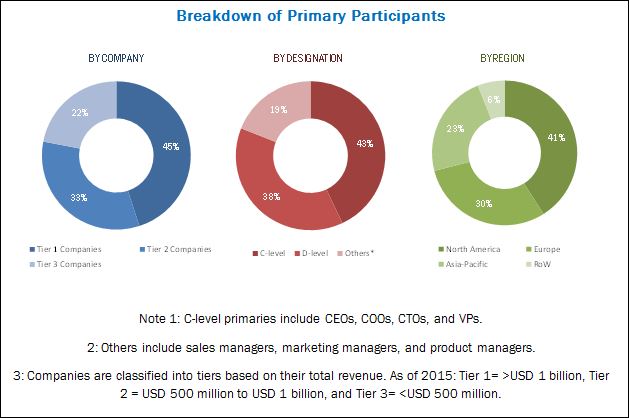The global Enteral feeding devices market is projected to
reach USD 3.19 billion by 2022 from USD 2.39 billion in 2017, at a CAGR of 6.0%.
This market is consolidated in nature with the presence of many local,
regional, and global players. The companies in this market are mainly focusing
on expansions and acquisitions to strengthen their product offerings and
establish a strong geographical foothold. In 2016, the top six players
accounted for 60% of the global market with Nestle (Switzerland) and Medtronic
(Ireland) dominating the market.
Download FREE Brochure @
Nestlé dominated the enteral feeding devices market in 2016.
The company is a leading manufacturer of enteral feeding formulas and devices
and supplies its products directly to hospitals and healthcare facilities. The
company’s enteral feeding products range helps address a wide range of health
conditions—from pediatric allergies to inborn errors of metabolism as well as
from obesity to malnutrition among the elderly. The company has grown at a
steady pace in this market with the help of various organic and inorganic
growth strategies. In line with this, the company collaborated with players
like GE Healthcare (UK) and Flagship Ventures (US) to bring about innovation in
the clinical nutrition sector. Nestlé’s strong market position can be
attributed to its operations in 191 countries, with 442 factories in 86
countries across most geographies. The company focuses on expanding its
business as well as strengthening its production capabilities to enhance its
market position.
Medtronic held the second position in the enteral feeding
devices market in 2016. Moreover, the company is growing at a rapid pace in
this market. The acquisition of Covidien Plc in January 2015 alleviated
Medtronic’s position in the global medical devices market, bringing an
extensive range of products under one roof. The company offers a comprehensive
portfolio of enteral feeding devices, such as enteral feeding pumps, neonatal
& pediatric feeding systems, adult nasogastric feeding tubes,
gastrointestinal products, enteral access products, and ENFit connectors. The
revenue generated from the company’s enteral feeding devices segment is
expected to grow in the near future owing to the brand recognition of its
devices (Kangaroo enteral feeding pumps) and the successful implementation of
organic and inorganic growth strategies. The company’s key growth strategies,
such as the expansion of existing production facilities and strengthening of
R&D capabilities, have helped it to maintain its position in this
competitive market. It intends to strengthen its presence in emerging
healthcare markets such as India, China, Brazil, and Turkey to garner a greater
market share in the upcoming years.
Some of the other players competing in this market are
Fresenius Kabi (Germany), Halyard Health (US), B. Braun (Germany), Abbott (US),
Danone (France), Cook Medical (US), C.R. Bard (US), Boston Scientific (US),
Moog (US), Vygon (France), CONMED (US), and Applied Medical Technology (US).
Know More @







No comments:
Post a Comment